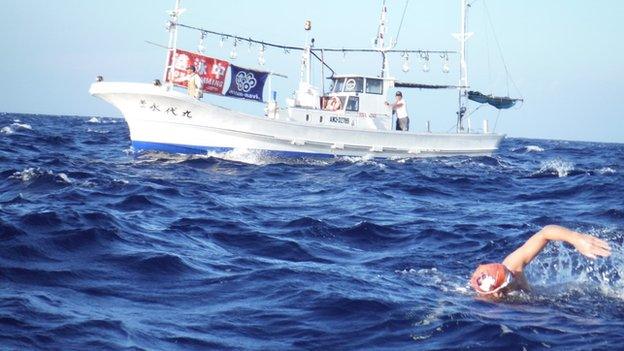Scots swimmer breaks record for Oceans Seven challenge
- Published
Andy Donaldson has completed the Oceans Seven challenge in record time.
A Scottish swimmer has become the first person to swim the world's seven most dangerous channels in less than a year.
Andy Donaldson, from West Kilbride, North Ayrshire, also set the fastest ever cumulative time for the 200km (124-mile) Oceans Seven challenge.
The 32-year-old completed the final 19.5km (12.1 mile) stage in Japan last month, having started the journey in August 2022.
He said he was both "delighted" and "shattered".
The Oceans Seven features the toughest and most iconic channel swims in the world, ranging in distance from 20km (12 mile) to 44km (27 mile).
Andy said crossing the Tsugaru Strait in Japan, which left him requiring hospital treatment, was the toughest leg despite being the second shortest of the challenge.
"I knew it was going to be a long day at the office when within 30 minutes I had already thrown up," he told BBC Radio's Good Morning Scotland programme.
He described conditions as "terrible" due to strong winds and and 10km per hour currents.
Andy added: "It was like trying to swim across a raging river."

Andy Donaldson has completed the Oceans Seven challenge in record time
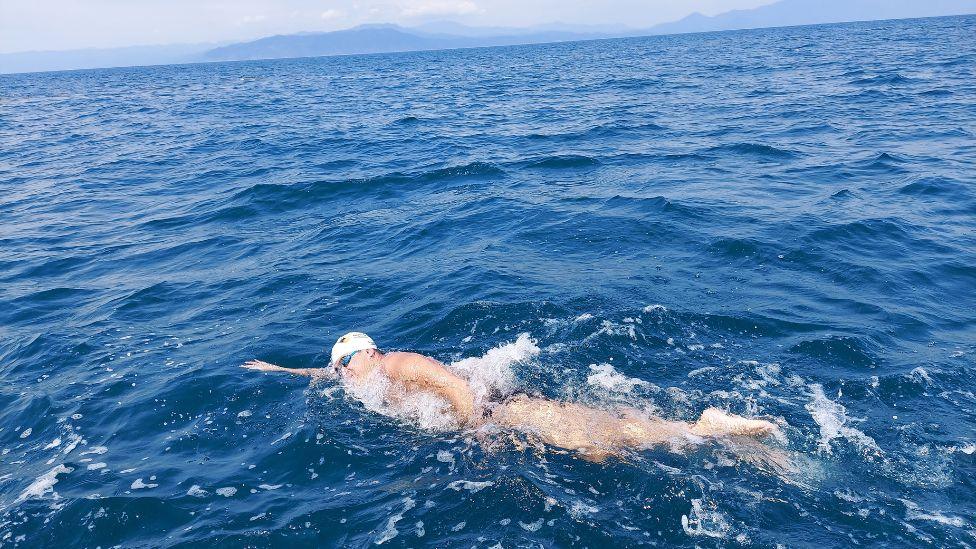
He faced his toughest challenged in Japan's Tsugaru Strait
Andy began the challenge by breaking the British record for swimming the English Channel before becoming the first Scottish male to swim from Ireland to Scotland.
In March, he set a new world record for the fastest swim across the Cook Strait - the waters between New Zealand's North and South Islands.
The next four crossings - the Molokai Channel in Hawaii, the Strait of Gibraltar between Spain and Morocco, the Catalina channel from Santa Catalina to Los Angeles and the Tsugaru Strait - were crammed into three months between April and July.
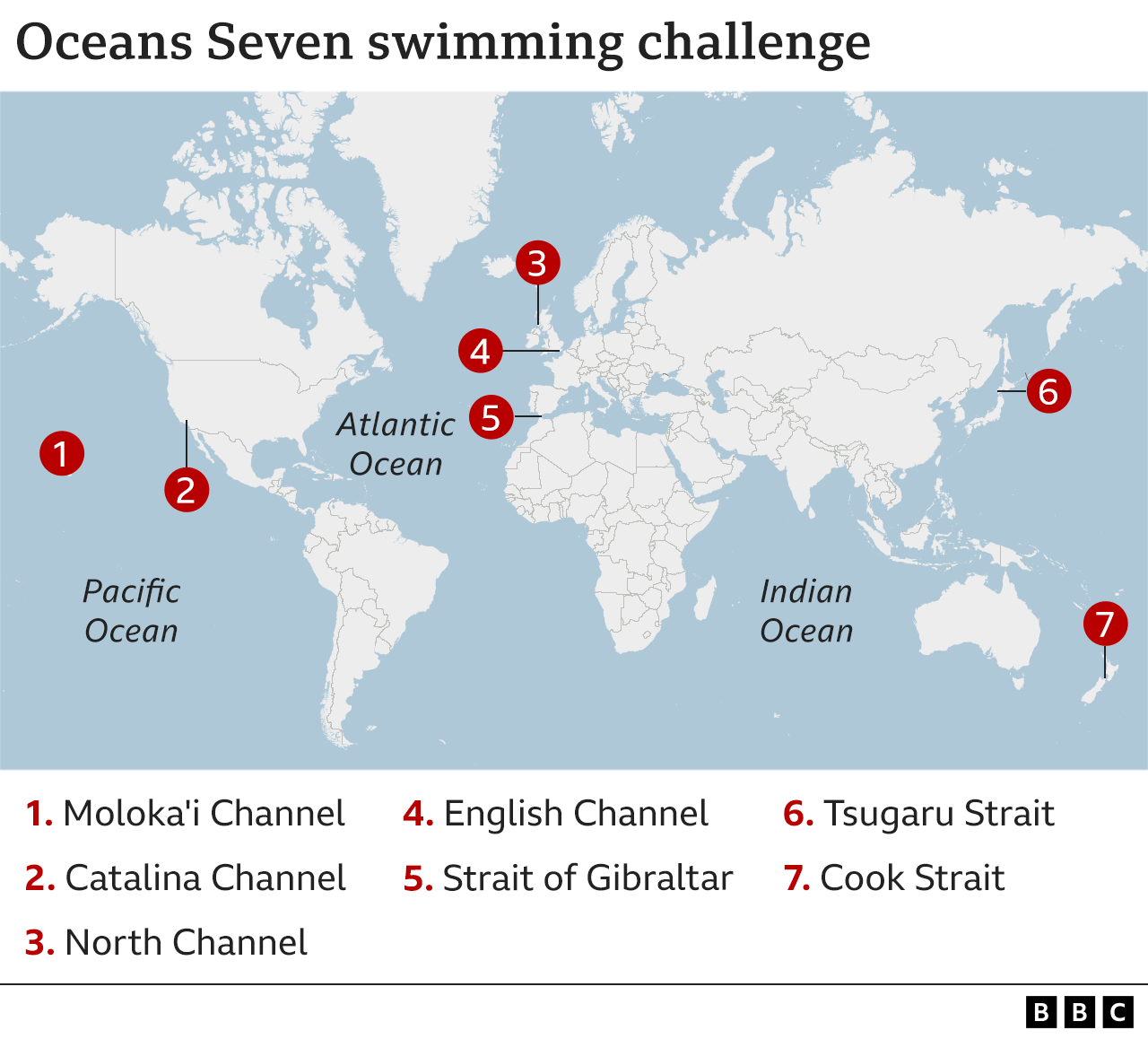
Andy set British records in the 14.4km (8.9 mile) Gibraltar swim as well as in the 32km (19.9 mile) Catalina Channel.
During his epic challenge he had to contend with ocean swells, currents, temperature changes and even sharks.
Andy also had to cope with a lack of light during night-time swims - which included a "bone-chilling" 34km (21 mile) journey from Ireland to Scotland.
Remarkably he completed the entire race within 355 days, shattering the previous record of two years and 60 days.
Andy's cumulative swim time of 63 hours 2 minutes also beat the previous best of 64 hours 35 minutes.
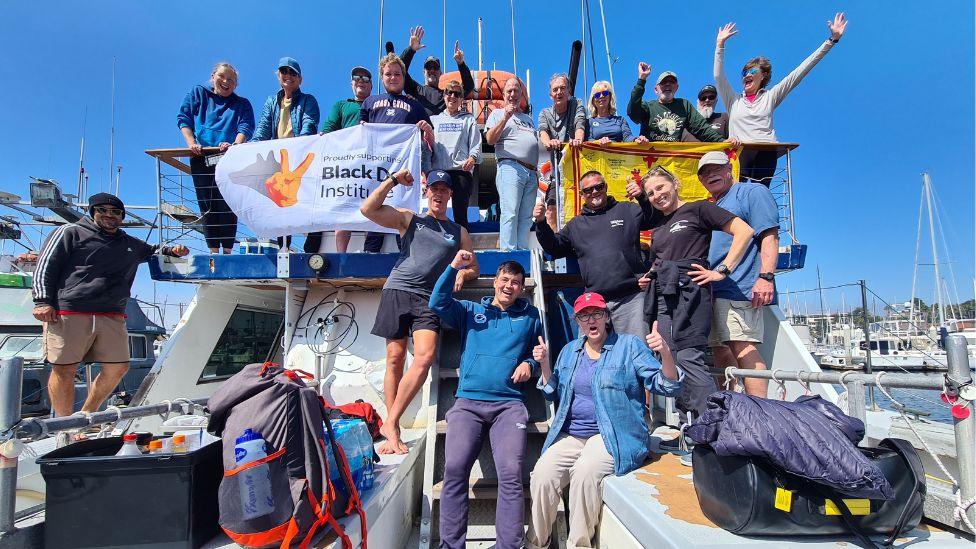
Andy was followed by a support crew in each of the legs
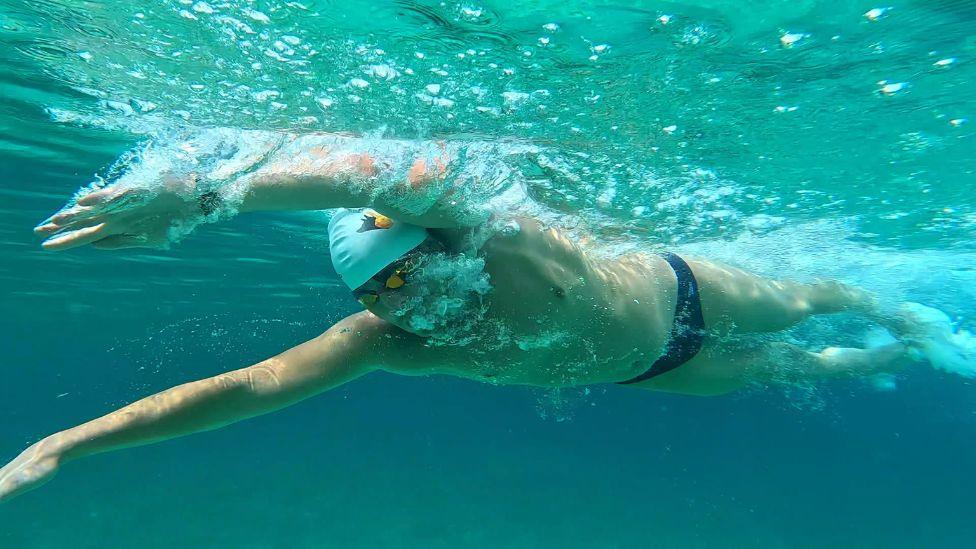
The Scot swam the Strait of Gibraltar in record British time
The swimmer's safety was in the hands of a support team which travelled alongside him in a boat on each leg, aiding with navigation.
"There are the physical challenges, but there are mental adversities too [like] when you're really going at a snail's pace, swimming into head-on currents," he said.
"With the help of my team, we've managed to come through each of them unscathed and give away a few records along the way."
As an ex-professional pool swimmer, Andy won national titles at 200m freestyle but switched to open-water swimming after moving to Perth, Australia, 10 years ago.

Andy, a proud Scot, won national titles in the pool before switching to open water events
Andy, who has suffered from depression and been inspired by his grandfather's struggle with the illness, raised funds for Australian-based mental health organisation the Black Dog Institute.
Amid dire warnings about rising sea temperatures and the implications for the planet, Andy hinted his next challenge could help raise awareness of the climate crisis.
The Ayrshire man said there had been a noticeable change in water temperatures in recent years.
"Swimmers are having to adapt to these changing oceans and weather patterns," he told BBC Scotland News.
"But in terms of the bigger picture, and the impact on the environment, ecosystems, and livelihood, it certainly is an issue for concern."
Related topics
- Published4 August 2023
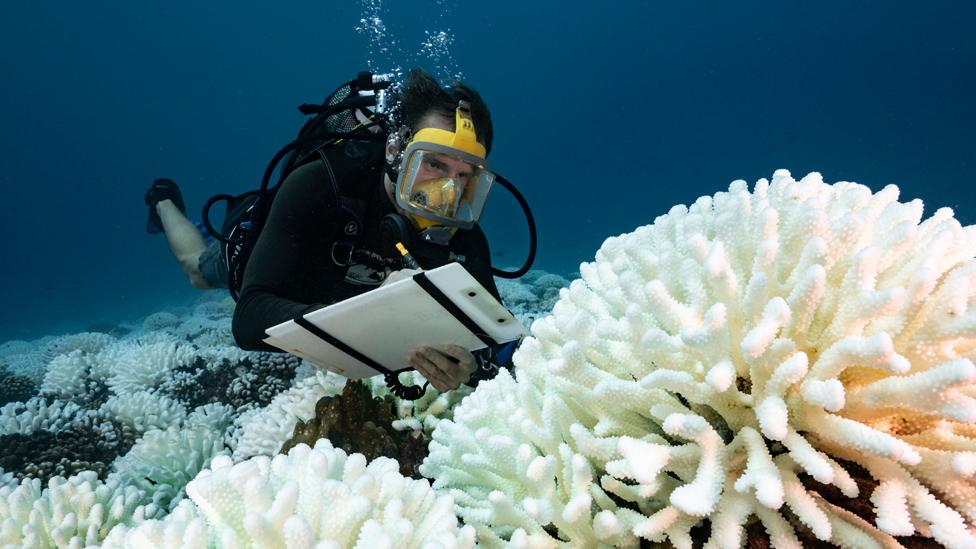
- Published21 March 2023

- Published11 September 2013
